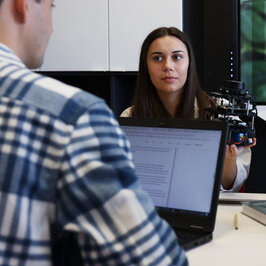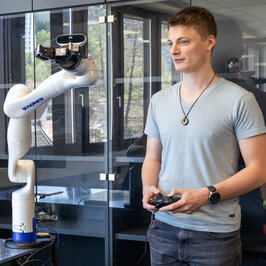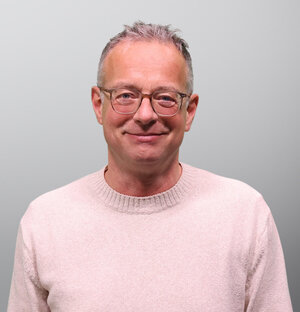Master complex IT
Distributed IT infrastructures pose challenges for companies all over the world. Deepen your knowledge of software engineering in our master's degree programme in Computer Science (INM). Learn about practice-oriented solutions for distributed systems and implement them using scientific methods.
Programme content and structure
The standard period of study for the Computer Science master's programme (INM) is three semesters. In the first two semesters, there are courses from the Software Engineering and Distributed Systems specialisations as well as advanced modules and compulsory elective modules. You will then write your master's thesis in the third semester.
Research specialisations
From an early stage, you will have the opportunity to work in the research focus areas of cloud and cloud-native computing, IT security, software engineering, artificial intelligence, machine learning and technologies for big data applications. And you can expand your individual study focus.
Internal link opens in the same window:More information on current research projects
INM specifics
There are two areas of specialisation in the course and you decide for yourself which you would like to develop further:
Software Engineering
In-depth knowledge in the planning, analysis and design of complex software systems will enable you to continuously improve the performance of a company's IT. You will learn how to systematically decide on a suitable development process in order to successfully develop large, complex software systems.
Distributed systems
You will acquire in-depth knowledge and experience in the field of component and middleware technologies in order to specify characteristic properties of secure, distributed systems and then design and implement these systems. The course enables you to design modern event-driven software systems. It will show you how to extract information from very large volumes of data using concepts and tools from the field of big data.
What's included
Study and Examination Regulations (SPO)
- Download file:General Master SPO
- External link opens in a new window:Computer Science (Master) - INM (VERSION 11, VALID SINCE SS 2022)
- Computer Science (Master) - INM (VERSION 10, VALID FROM 2014/15, LAST ENTRIES WS 2021/22)
INM download information
- Download file:Module catalogue (description of all INM modules)
- Download file:Learning outcomes
- Download file:Programme flyer
- INM Admission Regulations
Special features
Practical course content
We offer you up-to-date course content with a lot of practical relevance. You can work on application-oriented projects in our research groups from an early stage - personal support in small groups is guaranteed.
Work and study
The master's degree programme can also be studied part-time. Get personal advice from the Dean of Studies, Prof. Dr. Lothar Piepmeyer.
Your career prospects
The Computer Science master's degree offers you excellent opportunities on the job market. It is the ideal springboard for a career in business and science. We give you the best possible preparation for management positions!
The industry partners with whom our faculty works closely confirm that our graduates have outstanding practical skills when starting their careers. Your highly qualified IT expertise will open up future-oriented fields for you.
Next goal: a doctorate?
The cooperative doctoral programme enables our graduates to embark on the path to a doctorate.
Entry requirements
You need a relevant bachelor's degree to apply for the master's degree programme.
If you don't yet have a degree certificate from your bachelor's degree, then submit your current transcript of grades with the provisional overall grade. You can usually obtain the transcript of records from your university's examinations office. You can submit your final degree certificate at a later date.
The Computer Science Master's gave me a very good academic start without neglecting practical relevance!






